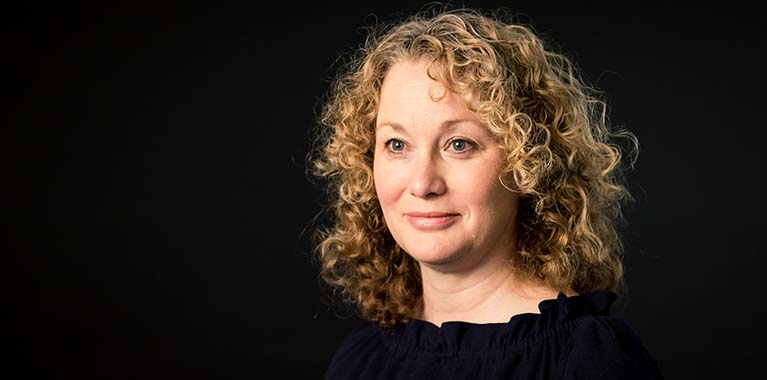The "Reflective Loss Rule" following the Supreme Court's decision in Marex: Primeo v Bank of Bermuda

In Primeo v Bank of Bermuda1The Privy Council has handed down an important decision concerning the reflective loss rule, which clarifies two points left open in the Supreme Court's judgment in Sevilleja v Marex Financial Ltd [2020] UKSC 31 (the "Marex decision").
The "Reflective Loss Rule"
You can read more about the reflective loss rule, and the Marex decision, in our previous article here. The key message from the Marex decision is that the rule against reflective loss is a narrow one. It only applies to claims: i) by shareholders (not, for example former shareholders or non-shareholder creditors); ii) for losses (in the form of a diminution in share value or in distributions) suffered in their capacity as shareholders; and iii) caused by a loss sustained by the company, which must also have a cause of action against the same wrongdoer (whether it chooses to pursue its claim or not).
However, since the Supreme Court's decision, subsequent judgments have introduced uncertainties regarding the scope and operation of the Marex decision. In particular, in Nectrus v UCP2 (on an application for permission to appeal), it was held that the claimant's status (as shareholder or former shareholder) is assessed at the time the claim is made, not when the loss occurs. On this issue, the Privy Council has now provided clarity. The Board departed from the decision in Nectrus and ruled that the relevant time to assess a claimant shareholder's status in this context is the point in time when the loss is suffered, not when the claim is made. While Privy Council authorities are not generally binding on English courts, they have great weight and persuasive value and it is likely that this decision will be followed. The Board also affirmed the Supreme Court's finding that the rule against reflective loss will only apply where the company and the shareholder have the same cause of action against the same wrongdoer.
Primeo v Bank of Bermuda
Background
The appellant ("Primeo"), a Cayman Islands company in official liquidation, had previously carried on business as an open-ended mutual investment fund. The respondents, professional service providers, acted as Primeo's administrator (R1) and custodian (R2) respectively.
Primeo invested some of its funds with Bernard L Madoff Investment Securities LLC (“BLMIS”). BLMIS was the vehicle by which Mr Madoff carried on his Ponzi scheme. Over time, BLMIS became the major part of Primeo's investment portfolio. In addition, Primeo also invested funds it received from its clients indirectly in BLMIS. It did this by buying shares in two feeder funds funnelling assets for investment into BLMIS, called Herald Fund SPC (“Herald”), a Cayman-domiciled fund, and Alpha Prime Fund Limited (“Alpha”), a Bermuda-domiciled fund. By 1 May 2001 the whole of the Primeo fund was invested either directly or indirectly with BLMIS.
On 11 December 2008, the Ponzi scheme operated by Mr Madoff and BLMIS collapsed. Mr Madoff surrendered to the authorities in the United States and was charged with fraudulently operating a multi-billion dollar Ponzi scheme. Primeo’s board of directors convened the following day and suspended the calculation of its NAV. It was realised that Primeo had suffered heavy losses and it was placed into voluntary liquidation on 23 January 2009.
Primeo brought claims against its administrators and custodians, R1 and R2. Herald also brought claims against R2 (whom it had also appointed as its custodian and administrator). Alpha too brought claims against R2, as its sub-custodian and sub-administrator.
Claims by Primeo
In February 2013, Primeo issued proceedings in which it alleged that R1 and R2 had breached their duties as administrator and custodian by, amongst other things, failing to exercise reasonable skill and care and, in the case of R2 alleging liability for the negligence of BLMIS, its sub-custodian.
Primeo claimed that these alleged breaches by R1 and R2 (or for which R2 was responsible in law) caused it loss on the basis that, if they had performed their duties properly, the audit evidence available to its auditors, Ernst & Young ("EY"), would have been insufficient for EY to certify Primeo’s accounts and NAV in respect of its investments in BLMIS with the result that Primeo would have withdrawn its investments and would not have placed further investments directly or indirectly with BLMIS.
Primeo’s claims went to trial in the Grand Court in 2016-2017. By a judgment dated 23 August 2017, the judge held that R1 and R2 owed relevant duties to Primeo and breached those duties, including on the strict liability claim against R2 by reference to breaches of duty constituted by the misconduct of BLMIS as sub-custodian. However, the judge dismissed Primeo’s claims on (inter alia) the grounds that they infringed the reflective loss rule (on the basis that Herald and Alpha also had claims against R1 and R2 which covered the same loss, and if they made recovery on those claims that would eliminate any loss suffered by Primeo).
Each side appealed various issues to the Court of Appeal. By a judgment handed down on 13 June 2019 (i.e. before the decision of the Supreme Court in Marex) the Court of Appeal allowed Primeo’s appeal in relation to the loss arising on the strict liability claim and, in relation to causation, held that the judge should have assessed causation in 2005 and 2007 on a loss of a chance basis, overturning his finding that Primeo would have reinvested its funds with BLMIS in any event. However, the court dismissed Primeo’s appeal, on the basis that its claims were barred by the reflective loss rule. This was because, by the time Primeo brought its claims against R1 and R2, it was a shareholder in Herald and Herald had its own claim against, in particular, R2, and it was common ground that if Herald succeeded in its claims against R2 (and R2 complied with the judgment) that would fully restore the value of the shares in Herald held by Primeo.
Appeal to the Privy Council
The Board gave directions to hear and determine the operation of the reflective loss rule. Another hearing followed to deal with the other issues on the appeal (including in relation to causation, limitation and contributory negligence).
"The timing issue"
In the Board’s judgment, on proper application of the reasoning of Lord Reed and Lord Hodge in the Marex decision, the reflective loss rule had no application to bar Primeo from claiming in respect of the losses it suffered each time it made a direct investment in BLMIS, nor from claiming in respect of the losses it maintained it suffered by loss of the chance to redeem its BLMIS investments down to the time of the Herald Transfer. In the Board’s view, those losses were not suffered by Primeo “in its capacity as shareholder” of Herald. So far as was relevant, at the time Primeo suffered such losses it was not a shareholder in Herald.
The Board noted that the reflective loss rule is, as was made clear in the Marex decision, a rule of substantive law associated with the rule in Foss v Harbottle and concerned with the recognition in law of particular types of loss. It is not a procedural rule concerned only with the avoidance of double recovery. Applied as a substantive rule of law, whether the reflective loss rule is applicable or not falls to be assessed as at the point in time when the claimant suffers loss arising from some relevant breach of obligation by the relevant wrongdoer. In this case, on each occasion when Primeo suffered loss on placing funds with BLMIS for investment it did so in circumstances where the law recognises its loss as real and of a type which is recoverable. In principle, on each occasion Primeo invested by paying money to BLMIS and had its money misappropriated, Primeo could have sued R1 and R2 in respect of their breaches of duty which caused such loss, which was of a form recognised in law according to ordinary principles and did not arise in circumstances which brought the exclusionary reflective loss rule into operation.
The Board therefore concluded that "since the rule is substantive rather than procedural in character, the relevant time to assess whether it applies or not is when the loss which is said by the claimant to be recoverable in law is suffered by it. The timing of the bringing of a claim and the circumstances which may pertain at that point in time are adventitious happenstance and have nothing to do with the operation of the rule."
"The common wrongdoer issue"
Primeo also submitted that the Court of Appeal was wrong to apply the reflective loss rule in relation to Primeo’s claims against R1 as its former administrator, because neither Herald nor Alpha had any claim against R1. Primeo pointed out that, as explained by Lord Reed in the Marex decision, the reflective loss rule only applies where “the company has a cause of action against the same wrongdoer” as the shareholder.
The Board concluded that the Court of Appeal had been wrong to elide the position of R1 and R2. Although R1 would have a claim against R2 in respect of its liability to Primeo as administrator, R2 was not a common wrongdoer for the purposes of the rule against reflective loss.
It is an inherent part of the reflective loss rule that it only applies to exclude a claim by a shareholder where what is in issue is a wrong committed by a person who is a wrongdoer both as against the shareholder and as against the company. The reflective loss rule established in Prudential, as endorsed by the Marex decision, “had no application to losses suffered by a shareholder which were distinct from the company’s loss or to situations where the company had no cause of action”. The Court of Appeal therefore erred in holding that the common wrongdoer requirement was satisfied in relation to R1 and R2, respectively.
Conclusion
The Privy Council has provided helpful clarification that:
- the relevant time for determining whether a loss is reflective is the point at which the loss is suffered, not when the claim is made; and
- the reflective loss rule will not bar a claim unless the shareholder and the company have a claim against the same wrongdoer (i.e. it is not enough that a defendant to the shareholder's claim may be able to pass on their liability to the defendant to the company's claim).
This decision is likely to deter defendants from spurious attempts to deploy the rule against reflective loss beyond the very limited set of circumstances to which it applies. However, it remains to be seen whether the rule will be subject to yet further clarification. In Broadcasting Investment Group Ltd v Smith3, the Court of Appeal observed (without deciding the issue) that it was "well arguable" that the rule against reflective loss could apply to indirect shareholders "in appropriate circumstances". Whatever the future holds, for now the direction of travel appears to be to restrict rather than expand the ambit of the rule.
1 Primeo v Bank of Bermuda [2021] UKPC 22
2 Nectrus v UCP plc [2021] EWCA Civ 57
3 Broadcasting Investments Group Ltd v Smith [2021] EWCA Civ 912


